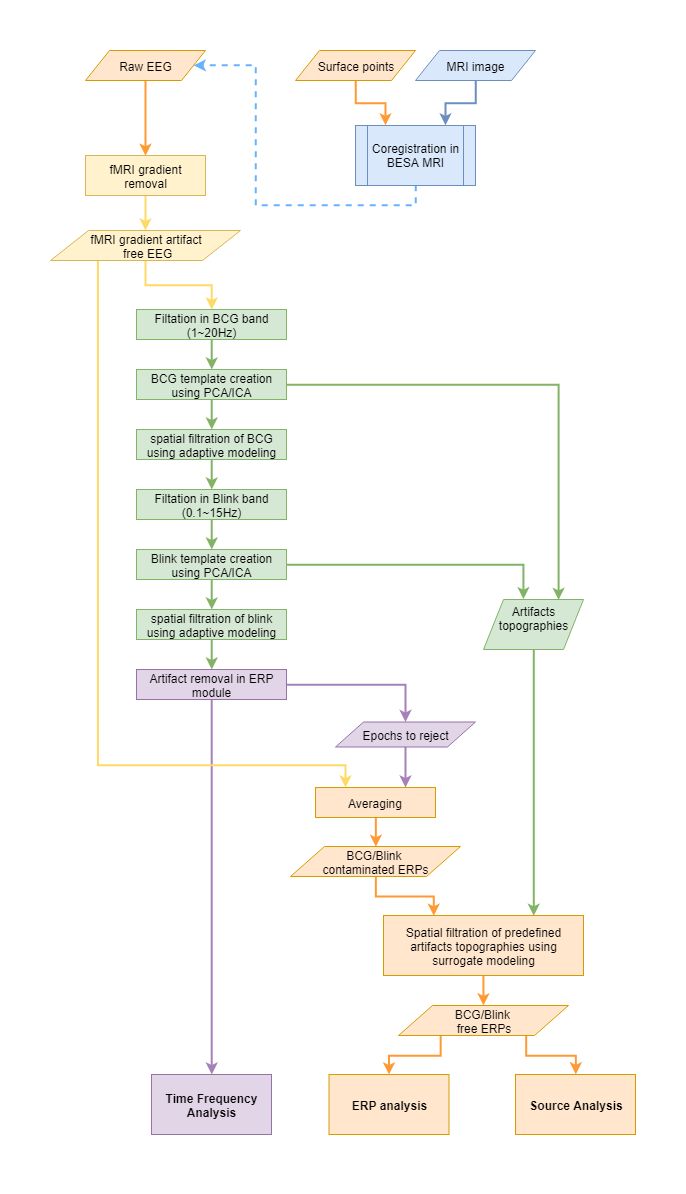Difference between revisions of "Pipeleline for simulatneus EEG-fMRI recording"
From BESA® Wiki
| Line 1: | Line 1: | ||
| + | {{BESAInfobox | ||
| + | |title = Module information | ||
| + | |module = BESA Research Basic or higher | ||
| + | |version = 7.0 or higher | ||
| + | }} | ||
| + | =Pipeline for simultaneous EEG-fMRI recording= | ||
== Before you start == | == Before you start == | ||
| − | + | * You have jitter between trials in ERP experiment (i.e. random value of ±200ms). Some further guidelines about paradigm creation can be found here: (Rusiniak et al., 2013a). | |
| − | + | * The subject movement is limited to minimum. | |
| − | + | * Electrode to skin impedance is as low as possible. | |
| − | + | * EEG-fMRI recording session was long enough to allow for proper artifact creation. Usually experiment should last at least 6 minutes. | |
| − | + | * Especially for first few registrations repeat the experiment outside of the bore to compare results. | |
The recommended pipeline of processing EEG data registered during fMRI session looks as follows: | The recommended pipeline of processing EEG data registered during fMRI session looks as follows: | ||
[[File:EEG-fMRI pipeline.png]] | [[File:EEG-fMRI pipeline.png]] | ||
Revision as of 17:51, 9 April 2018
| Module information | |
| Modules | BESA Research Basic or higher |
| Version | 7.0 or higher |
Pipeline for simultaneous EEG-fMRI recording
Before you start
- You have jitter between trials in ERP experiment (i.e. random value of ±200ms). Some further guidelines about paradigm creation can be found here: (Rusiniak et al., 2013a).
- The subject movement is limited to minimum.
- Electrode to skin impedance is as low as possible.
- EEG-fMRI recording session was long enough to allow for proper artifact creation. Usually experiment should last at least 6 minutes.
- Especially for first few registrations repeat the experiment outside of the bore to compare results.
The recommended pipeline of processing EEG data registered during fMRI session looks as follows:
